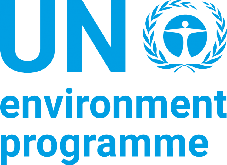In North America, air pollution remains a serious health risk, especially for the poor and communities of colour. However, research suggests large improvements in air quality have been achieved in recent years, providing hope that the region, and others around the world, can counter one of the planet’s deadliest environmental threats.
A recent report from the United Nations Environment Programme (UNEP) found that Canada and the United States of America had reduced the amount of some common pollutants by more than 80 per cent. As a result, North Americans are at least six times less likely to die from air pollution than the global average. The report, Actions on Air Quality in North America, credited both countries for introducing science-based policies that cut down on air pollution, which is responsible for more than 10 per cent of global deaths.
“Canada and the United States have unique approaches towards reducing air pollution, which have successfully resulted in a long-term reduction in emissions and exposure throughout the region,” says Barbara Hendrie, Director for the UNEP North America Office.
Her comments came just ahead of the International Day of Clean Air for blue skies, which is designed to raise awareness about the dangers of air pollution. Some 99 per cent of the planet breathes polluted air, and airborne contaminants are responsible for 7 million premature deaths in any given year.
The Actions on Air Quality in North America report said improving air quality was the result of decades of efforts to measure key pollutants, inventory sources of emissions and develop laws that countered air pollution. That legislative push includes the United States Inflation Reduction Act, which includes provisions to improve air quality and which President Joe Biden recently signed into law.
The UNEP report showcased several North American cities that have made progress in improving air quality. Here are some of them.
Vancouver (Canada)

The city has established a clean air plan that strives to reduce greenhouse gas emissions by 45 per cent from 2010 levels, meet or exceed ambient air quality standards set by the federal government, and increase the amount of time visual air quality is classified as “excellent” by 2030.
Washington D.C. (United States)

The American capital is the first U.S. city to join the BreatheLife Network, whose members have committed to taking action to achieve World Health Organization Air Quality Guidelines by 2030
Oakville (Canada)

In 2010, the town established the Health Protection Air Quality by-law, which safeguards Oakville residents from the negative effects of fine inhalable particles (also known as PM2.5) by requiring the collection of emissions information from the city’s facilities and by implementing regulatory controls for major emitters.
Los Angeles (United States)

The City of Angels has a climate action plan that aligns with the Paris Agreement. It has also signed the C40 Clean Air Cities Declaration, pledging to meet a variety of air quality commitments.
Montreal (Canada)

Canada’s second-largest city has regulations to reduce atmospheric emissions from thousands of factories. It has also implemented measures to monitor air quality.
San Francisco (United States)

Through the Pacific Coast Collaborative, a partnership with other western cities, San Francisco has pledged to reduce greenhouse gas emissions by 80 per cent by 2050 and vowed to use only renewable sources of power by 2025.
Further resources:
Background: UNEP’s work on air pollution
Report: Actions on Air Quality in North America
Background: International Day of Clean Air for blue skies
Related articles:
The United States Clean Air Act turns 50: is the air any better half a century later?
